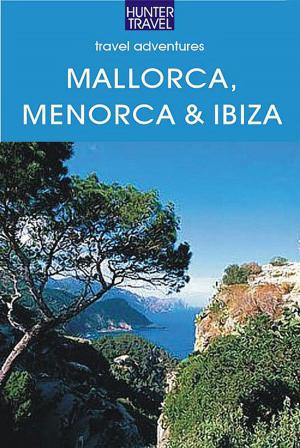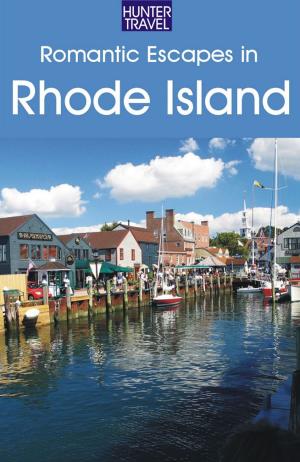| Author: | Kathleen O'Donnell | ISBN: | 9781556501272 |
| Publisher: | Hunter Publishing | Publication: | February 15, 2013 |
| Imprint: | Language: | English |
| Author: | Kathleen O'Donnell |
| ISBN: | 9781556501272 |
| Publisher: | Hunter Publishing |
| Publication: | February 15, 2013 |
| Imprint: | |
| Language: | English |
Tobago offers an exquisite environment, but it has other major advantages. Until recently, Tobago's tourism industry was undeveloped. There were only a few resort-style hotels on the island, and none were more than three stories high. Numerous small hotels and guest houses dotted the towns, and there was a very low-key feel to the island. Tobago has now found itself on the tourist map, and hotels and holiday villa construction projects are in the works around the island. Tobago is still a very friendly and safe island. There are beautiful beaches, of course, but Tobago offers much more. It is a bird watcher's paradise. It also has the oldest national park in this hemisphere and some of the best scuba diving in the Caribbean for experienced divers. Tobago offers visitors a true Caribbean getaway. It is very relaxed, with sunning and swimming its major attractions. Golf, tennis, and numerous water sports are available, including snorkeling, windsurfing, diving, sailing, and deep-sea fishing. The natural environment is perfect for hiking along nature trails in the rain forest, and people in Tobago are open and friendly. Like us and so many others, you'll find yourself wishing a part of Tobago could be yours forever. There is an unwritten law in Tobago that buildings may not be taller than a palm tree. That unofficial rule is now becoming a part of development policy, and hotels may not be more than three stories high anywhere on the island. Attention is also being given to the delicate ecosystem and fragile nature of the land. While the number of hotel rooms will soon more than double, sites are being carefully selected to avoid damaging the very thing that makes the island special: its beautiful environment and clean waters. When visiting Trinidad and Tobago, remember that Tobago, especially, is still an island of villages and small-town friendliness. We got a lift from a farmer one day and as we rode along he talked about the strong village ties in Tobago. Village elders still try to keep everyone on the straight and narrow so there are fewer social problems in Tobago than in nearby, more urban Trinidad. Tobagoins are accepting of visitors and seem to have unending patience with the interruptions in their daily lives caused by tourists. While open-minded, the islanders are not sophisticated. Trinidad and Tobago both provide extraordinary opportunities to explore nature in all its forms. There are over 400 species of birds, over 600 varieties of butterflies, monkeys, armadillos, caiman, lizards, over a hundred species of snakes, and a huge variety of fish and other marine life. All of these find homes in an astonishing variety of natural environments - saltwater and freshwater mangrove swamps, mountain and coastal rain forests, savannahs, coral reefs, deepwater caves, freshwater rivers, and city parks. There are over 2,300 varieties of flowering plants and it seems there are almost as many micro-climates to support them. Tobago is a bird watcher's heaven. You will hear bird songs all over the island, and will see a variety of birds, large and small. On any window ledge you can create a bird feeder with a little sugar or a banana. We made a birdbath for the tinier birds with a bowl of water, and it was endless joy to see hummingbirds, canaries, and parakeets dine and bathe. This is the most in-depth guide to the island, with extensive information about what to see and do, where to stay and eat, the history and culture. And with color photos throughout.
Tobago offers an exquisite environment, but it has other major advantages. Until recently, Tobago's tourism industry was undeveloped. There were only a few resort-style hotels on the island, and none were more than three stories high. Numerous small hotels and guest houses dotted the towns, and there was a very low-key feel to the island. Tobago has now found itself on the tourist map, and hotels and holiday villa construction projects are in the works around the island. Tobago is still a very friendly and safe island. There are beautiful beaches, of course, but Tobago offers much more. It is a bird watcher's paradise. It also has the oldest national park in this hemisphere and some of the best scuba diving in the Caribbean for experienced divers. Tobago offers visitors a true Caribbean getaway. It is very relaxed, with sunning and swimming its major attractions. Golf, tennis, and numerous water sports are available, including snorkeling, windsurfing, diving, sailing, and deep-sea fishing. The natural environment is perfect for hiking along nature trails in the rain forest, and people in Tobago are open and friendly. Like us and so many others, you'll find yourself wishing a part of Tobago could be yours forever. There is an unwritten law in Tobago that buildings may not be taller than a palm tree. That unofficial rule is now becoming a part of development policy, and hotels may not be more than three stories high anywhere on the island. Attention is also being given to the delicate ecosystem and fragile nature of the land. While the number of hotel rooms will soon more than double, sites are being carefully selected to avoid damaging the very thing that makes the island special: its beautiful environment and clean waters. When visiting Trinidad and Tobago, remember that Tobago, especially, is still an island of villages and small-town friendliness. We got a lift from a farmer one day and as we rode along he talked about the strong village ties in Tobago. Village elders still try to keep everyone on the straight and narrow so there are fewer social problems in Tobago than in nearby, more urban Trinidad. Tobagoins are accepting of visitors and seem to have unending patience with the interruptions in their daily lives caused by tourists. While open-minded, the islanders are not sophisticated. Trinidad and Tobago both provide extraordinary opportunities to explore nature in all its forms. There are over 400 species of birds, over 600 varieties of butterflies, monkeys, armadillos, caiman, lizards, over a hundred species of snakes, and a huge variety of fish and other marine life. All of these find homes in an astonishing variety of natural environments - saltwater and freshwater mangrove swamps, mountain and coastal rain forests, savannahs, coral reefs, deepwater caves, freshwater rivers, and city parks. There are over 2,300 varieties of flowering plants and it seems there are almost as many micro-climates to support them. Tobago is a bird watcher's heaven. You will hear bird songs all over the island, and will see a variety of birds, large and small. On any window ledge you can create a bird feeder with a little sugar or a banana. We made a birdbath for the tinier birds with a bowl of water, and it was endless joy to see hummingbirds, canaries, and parakeets dine and bathe. This is the most in-depth guide to the island, with extensive information about what to see and do, where to stay and eat, the history and culture. And with color photos throughout.















